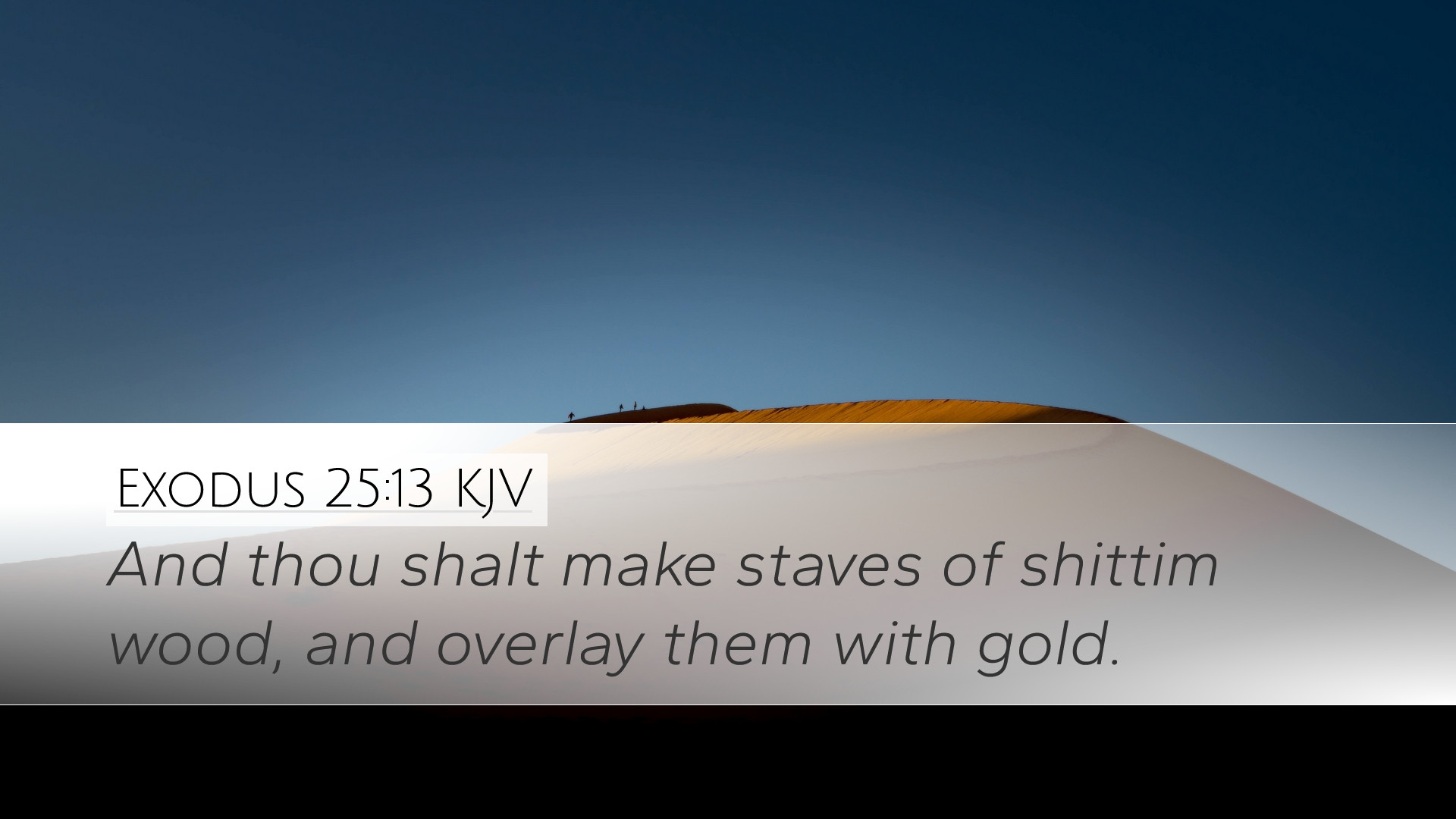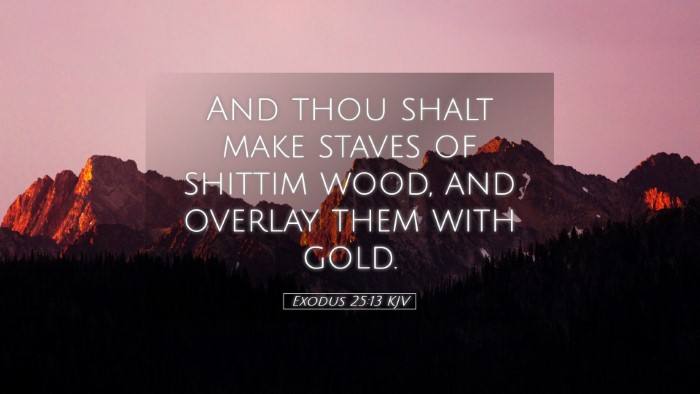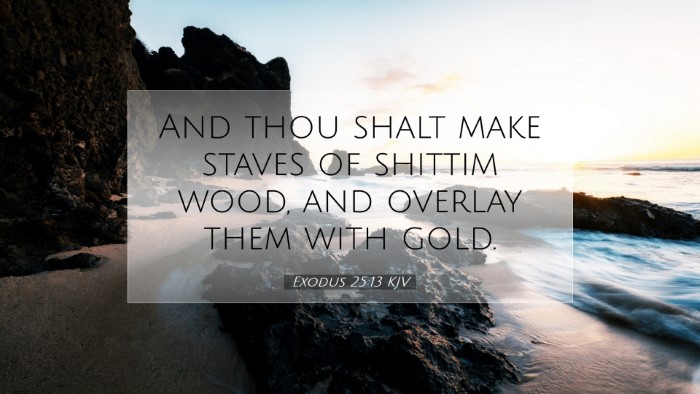Commentary on Exodus 25:13
Verse: Exodus 25:13 - "And thou shalt make staves of shittim wood, and overlay them with gold."
Introduction
Exodus 25:13 is a vital verse in the context of the instructions given to Moses regarding the construction of the Tabernacle and its furnishings. This verse specifically gives directives for the creation of the staves (or poles) that would be used to carry the Ark of the Covenant. The Ark was not only the central item of the Tabernacle but also symbolized God's presence among His people.
Analysis of the Verse
The command to make staves of shittim wood and to overlay them with gold carries significant spiritual and practical implications that deserve careful examination.
1. The Material: Shittim Wood
Shittim wood (Acacia wood) is noted for its durability and resilience, making it an appropriate choice for the staves. Albert Barnes comments on the nature of shittim wood, noting that it is strong and resistant to decay, which is emblematic of God's enduring nature and the permanence of His covenant.
2. The Process: Overlaying with Gold
The command to overlay the staves with gold speaks to their sanctity and importance. Gold, a symbol of divinity, purity, and value, signifies that the means by which God's presence is carried (the staves) is set apart. Adam Clarke points out that this act serves as a reminder that while the staves are made from earthly materials, they are to be consecrated for divine use.
3. The Purpose: To Carry the Ark
The primary function of the staves is to serve as carriers for the Ark of the Covenant. This reflects God's desire for an accessible relationship with His people. Matthew Henry elaborates on the significance of the Ark, noting that it represented God's throne and His covenant with Israel, thus the means to carry it must be sacred as well.
Spiritual Implications
The combination of shittim wood and gold serves as a compelling metaphor for the Christian experience. The staves can be seen as a symbol of how God uses ordinary people (the wood) to accomplish His extraordinary purposes (the gold). This is echoed in John 15:5 where Jesus states, "I am the vine, ye are the branches," illustrating that believers, though rooted in earthly experiences, are called to carry the presence of God into the world.
Divine Presence and Accessibility
The staves allowed the priests and Levites to transport the Ark without direct contact, preserving its holiness while facilitating mobility. This highlights the importance of reverence in approaching God. Albert Barnes emphasizes the idea that God's presence is both majestic and approachable, encapsulated in the sanctified means by which it is carried.
Practical Applications for Ministry
Pastors and ministry leaders can draw several lessons from Exodus 25:13:
- Holiness in Service: Just as the staves were made holy through gold overlay, leaders are called to lead lives that reflect the holiness of God. Their tools and methods of ministry should likewise be set apart for sacred use.
- Strength in Weakness: God equips His leaders with both strength (symbolized by shittim wood) and divine purpose (symbolized by gold). This duality allows them to carry His presence into diverse settings.
- Community and Collaboration: The staves were meant to be carried by more than one person, emphasizing the importance of community in the body of Christ. Pastoral teams should work collaboratively in their ministries.
Conclusion
Exodus 25:13 encompasses a profound truth about God's interaction with His people, representing both His holiness and His desire to dwell among them. As modern believers, we can find encouragement in the reminder that God chooses to use ordinary vessels for His extraordinary presence. By adhering to the principles illustrated in this verse, pastors, theologians, and students alike can cultivate a deeper understanding of their roles in carrying the tangible presence of God in their communities and beyond.


